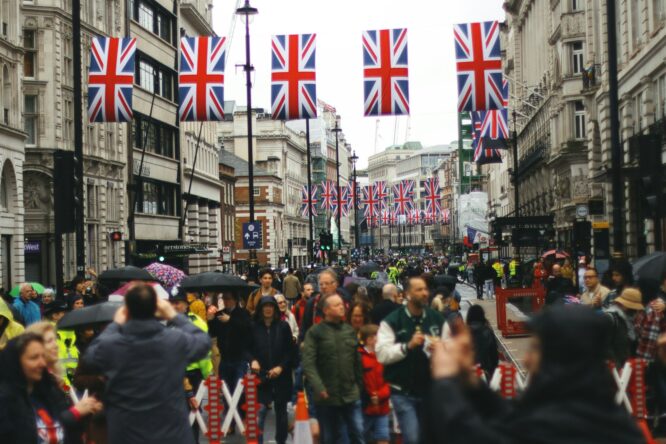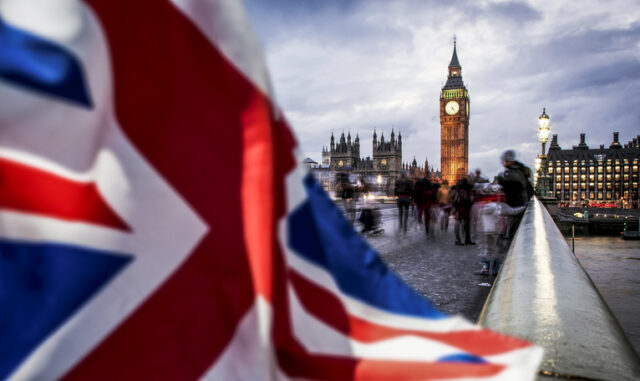The UK’s got charm, for sure, but it’s also full of stuff that’s stuck in a different decade—or a different century.

We’re not necessarily behind the rest of the world in most respects, but there are some things that feel a bit backwards, especially in comparison to how things are done in many other countries. From pointless laws to systems that clearly need a reboot, here are some things still hanging around in Britain that honestly have no business existing anymore.
1. You can still be arrested for being drunk in a pub.

It sounds like a joke, but it’s a real law from 1872 that technically makes it illegal to be drunk in a licensed premises. You know—the very place people go to drink. While it’s rarely enforced unless you’re causing a serious scene, the fact that it’s still sitting there in black and white is wild.
It’s one of those relics that makes you realise how much of the UK legal system is just patched together from leftover Victorian logic. We’ve got entire pub chains themed around getting smashed, but the law still says no. Make it make sense.
2. You can’t legally fly a kite in public if it annoys anyone.

According to a law from 1839, flying a kite in a public place is illegal if it causes annoyance. Technically, your peaceful Sunday in the park could become a criminal offence if someone nearby decides your kite is getting on their nerves.
It’s another example of how British laws love to overcorrect. Instead of dealing with actual anti-social behaviour, we’ve got bans on innocent childhood hobbies. The fact that this still exists kind of says it all about how slow we are to clean up outdated nonsense.
3. You need a TV licence just to watch live content or BBC iPlayer.

In 2025, we’ve got Netflix, YouTube, Disney+, and about a thousand other ways to stream content, but the UK still clings to a £174.50 per year TV licence. Miss a payment, and you risk fines or even prosecution. For watching telly.
It’s not about hating the BBC. It’s about acknowledging that this model doesn’t reflect how people actually consume media anymore. Clinging to this system feels like taxing people for using their landline. It’s outdated, and everyone knows it.
4. It’s still illegal to handle salmon “suspiciously.”

Thanks to the Salmon Act of 1986, you can be prosecuted for handling salmon in suspicious circumstances. It was meant to tackle illegal fishing, but the wording is so vague it sounds like a Monty Python sketch.
We’re decades into a digital economy, and we’re still spending government energy on fish crime. If this law ever gets updated, it’ll probably take another ten years to remove “suspicious salmon activity” from the books. Peak bureaucracy.
5. Victorian housing with zero insulation is still the norm.

So many UK homes, especially older terraced houses, are freezing in winter, boiling in summer, and cost a fortune to heat. Modern insulation? Often nowhere to be found. It’s a national problem we talk about every winter, then ignore every spring.
It’s not just uncomfortable—it’s expensive and unsustainable. The energy crisis exposed just how badly behind we are. Yet we’re still living in buildings designed for a time before double glazing. And the worst part? We act like it’s normal.
6. Infrastructure projects take forever and still underdeliver.

Whether it’s the Elizabeth line delays, pothole repairs that vanish overnight, or HS2 being scaled back halfway through, infrastructure in the UK is a bit of a national joke. Things take years to complete, and still don’t fully work when they’re done.
It’s not that progress isn’t being made. It’s that we make it feel so painful. Other countries get new bridges or rail lines in a couple of years. Here? We get news coverage, public outrage, and another consultation before a single shovel hits the ground.
7. GP practices are closing without replacements.

Since 2013, hundreds of GP surgeries have closed across the country, with many not being replaced. That means longer waits, overloaded practices, and entire communities losing access to basic care. It’s hitting the most deprived areas hardest.
We talk a lot about valuing the NHS, but access to a local GP is one of the most basic things people need. When even that’s being stripped away, it’s not just an inconvenience—it’s a warning sign.
8. You still can’t gamble in a library.

Yep, there’s a specific law against gambling in public libraries. As if there’s some secret epidemic of poker games breaking out between the shelves. While this one’s more funny than harmful, it shows how rigid and oddly specific some rules are.
We’ve got bigger issues—like libraries closing entirely—but sure, let’s keep this one on the books. It’s not doing any harm, but it does highlight how little our laws reflect how public spaces are actually used today.
9. Outdated cybercrime laws are still running the show.

The Computer Misuse Act from 1990 is still the backbone of cybersecurity law in the UK, even though it was written before smartphones, cloud storage, or TikTok. Hackers and scammers have evolved. The law? Not so much.
Even cybersecurity professionals have flagged how clunky and unfit it is for modern threats. But updates move slowly, and enforcement is patchy. Meanwhile, the risks keep growing, and the tools we use to protect against them are stuck in the past.
10. MPs are still technically banned from wearing armour in Parliament.

This one dates all the way back to 1313. No, it’s not enforced, but yes, it’s still law. MPs aren’t allowed to wear armour in the House of Commons. Because, apparently, that was once a thing they needed to say out loud.
While it’s mostly just an amusing footnote, it also says something about how slow we are to clean out laws that no longer apply. Hundreds of years later, and we still haven’t officially taken off the chainmail.
11. Local buses still operate like it’s 1997.

Outside of major cities, bus networks are patchy at best. Timetables vanish after 6pm, routes disappear with no notice, and contactless payment? Don’t count on it. For a country that loves to push green transport, our bus systems often feel prehistoric.
People want to ditch cars and use public transport, but when that transport feels unpredictable, slow, or confusing, they give up. And who can blame them? If you can’t rely on a basic bus route, everything else becomes harder to access.
12. The obsession with council paperwork for basic things is incredibly outdated.

Want to put up a new fence? You’ll need forms. Want to hold a small community event? More forms. Even replacing a window can require permission depending on the postcode. It’s admin for the sake of admin.
This kind of red tape slows down people who are actually trying to improve their homes or communities. Instead of making things easier, it often puts people off doing anything at all. Modern systems should help—not make you dread the post arriving.
13. The lack of transparency around private rent increases is kind of insane.

Renting in the UK can feel like walking through a trapdoor—fine one minute, wildly unaffordable the next. Landlords can hike rent with little notice, and tenants often have few options to push back. It’s stressful, inconsistent, and feels deliberately vague.
In 2025, it’s wild that renters still don’t have clearer protections or systems to challenge unfair increases. Everyone talks about housing security, but renters are still treated like they’re lucky just to have a roof over their heads.
14. Clinging to things just because they’re “tradition” needs to stop.

So much of British culture still leans on tradition like it’s a free pass to avoid change. Whether it’s outdated institutions, class-based systems, or rules nobody questions, “that’s just how it is” gets used a little too often as an excuse.
Tradition has its place, but when it stops progress, it’s a problem. There’s a fine line between heritage and habit. And some habits, no matter how old, have seriously outstayed their welcome.




